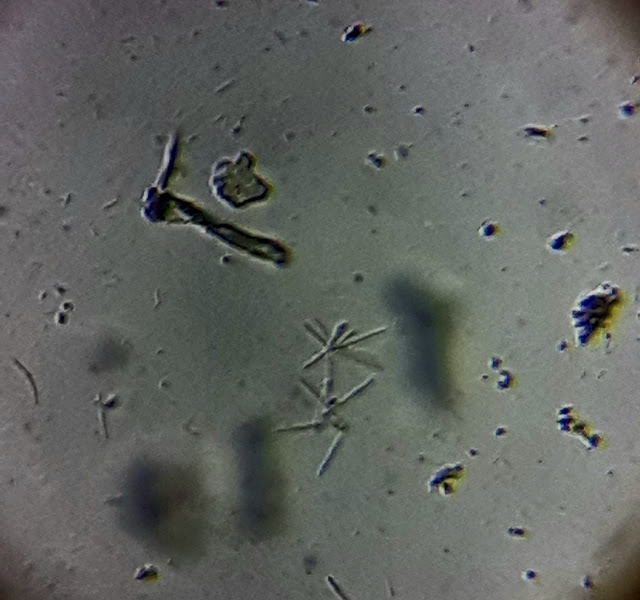The Bacterial microscopy
The Bacterial microscopy
Good evening or what ever the time is. So today I hope you to show some movements and activities of some typical bacteria which I photographed myself. It has to be noted that bacteria are considerably hard to observe. A plenty of light and a good magnification is needed to observe them with a typical light microscope. So let's start.
I got these pictures yesterday and day before it (2023/06/06,07). I've here got 2 types of bacteria which I believe yoghurt bacteria and the typical plant fiber decaying bacteria. The yoghurt bacteria was taken from a sample of yoghurt but I had to make the other by collecting some dirt and adding them into some coconut fibers and keeping the sample for a few days to activate.
Lactobacillus bulgaricus/ Streptococcus thermophilus
These two bacteria are the mainly used microbes to make yoghurt and except those Lactobacillus lactis is also used in producing dairy products. But I believe the sample I go here consisted more of the type Lactobacillus bulgaricus. The word has a part called "bacillus" that means they belong to the genus bacillus. Bacteria with this genus are elongated and like cylindrical pills. so what I saw was the same which are mighty elongated. While the coccus types are usually circular in shape.
The dot like things that you'll see there are the microbes.
When I recorded them, they were flowing in the medium between their colonies, really fascinating. Even some of them move.
Bacillus corchorus/ Bacillus comesii
Now I'm not that 100% sure this is the above 2 or may be they are some kind of same species as them or another kind of plant fiber decaying bacteria. They break the peptide bonds in the fibers so they are easy to be used in industries. Their activity was very rapid as well as their metabolism. I only saw 6 or 8 bacteria in the first time but about like an hour later, they had multiplied themselves each other, very rapidly.


.jpeg)





